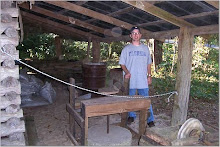In Archive Stories: Facts, Fictions, and the Writing of History, Antoinette Burton brought together seventeen people with archival experience some of which were professional historians. I enjoyed reading this book and learning about archiving as the archivists described their personal experiences and interactions with archives. One of the articles I found interesting was about an archivists who offered an interesting argument on how the wealth and prestige of Western researchers can gain the researchers entry into many highly restrictive archives. The article explained how it is important to be well known and have financial backing in order to view and study the collection in some archives. This particular article used the Uzbekistan’s Central State Archive as an example in explaining how wealth and prestige can help the archivist gain access to certain collections. The article described how the Uzbekistan’s Central State Archive severely limits the access of Uzbek researchers but has allowed other more well known historical archivist from Western to be permitted to view its collection. Jeff Sahadeo’s experience with the archives in Uzbekistan was a great example in my opinion. To gain access to the archives meant waiting weeks until a form detailing his research topic was accepted and filed by the Ministry of Foreign Affairs. What I got out of this was had he been more well know in his filed his path to the Uzbek archive would not have taken as long. In yet another example of how archives can limit access is that of Helena Pohlandt-McCormick in South Africa. She views the archives there as incomplete. She even went so far as saying that the archives had been manipulated by the government. The article described the archivists in South Africa as “guardians” of the archives that make it nearly impossible to gain access to certain records. The article made it seem that the access to the archives is being limited because the archives may reveal injustices the government does not want people to know bout.
A number of the essays question what counts as an archive. According to the American Association of Museums an archive is a museum. While other articles question what counts as history? I believe these questions have been raised because some museums along with their archive have misinterpreted or misrepresented history. The articles encompassed in this book help to highlight the intentions behind the construction and subsequent management of archival collections. They provide the reader with the universally contingent nature of the researcher's interaction with the archive. These articles also challenge scholars to expand on their definitions of evidence so that they include oral testimonies from people who have typically omitted from archival collections in the past and Burton said these omitted people should be made as "dominant regions of truth".
I believe Burton has done a wonderful job in taking these articles of the archivist that have had very different experiences and putting these articles into one clear discussion about treatment of historical archiving. I also believe this book would be an important read for people interested in archiving. I believe it is a truly interesting book and not those just interested in history. The reason is this book encourages people to always question the nature of what we call history and not just history as a subject but the history of life.
The Final Frontier?
17 years ago

No comments:
Post a Comment